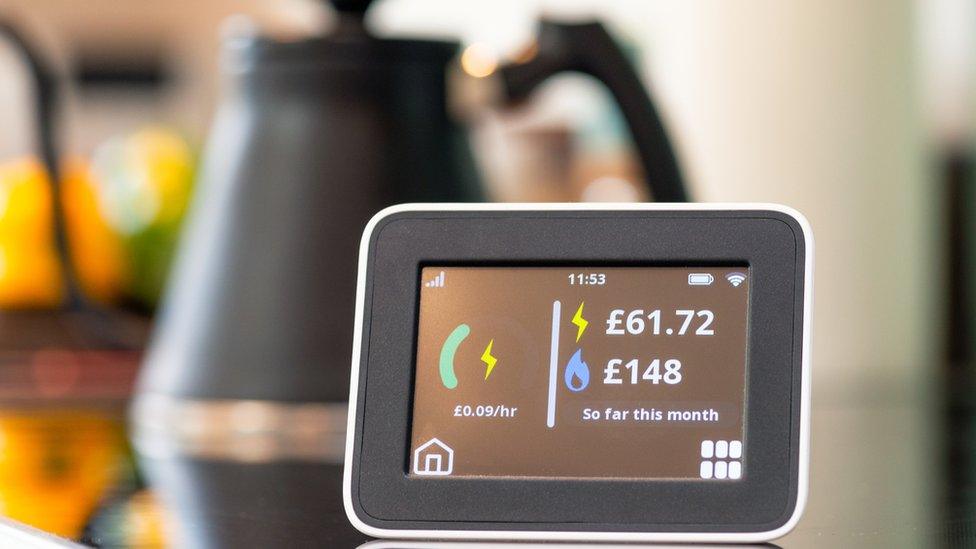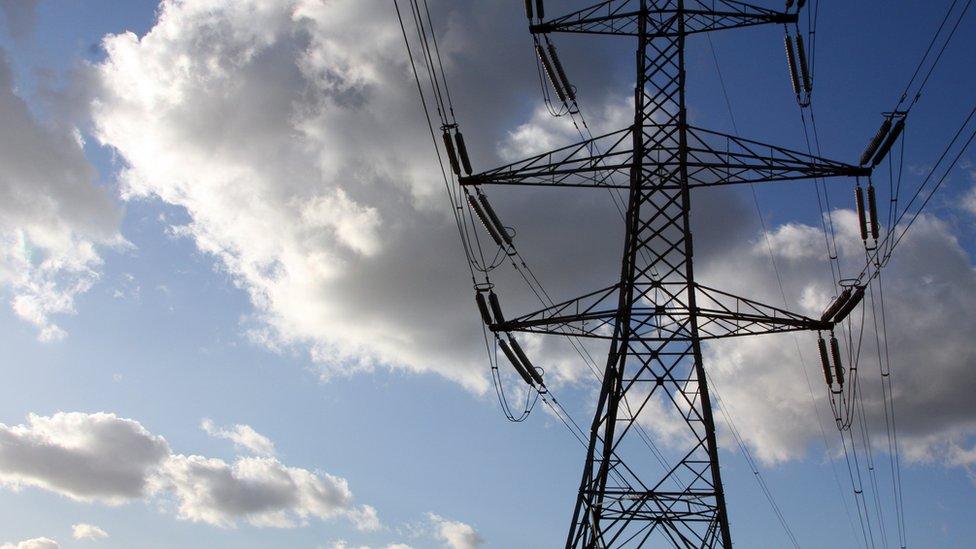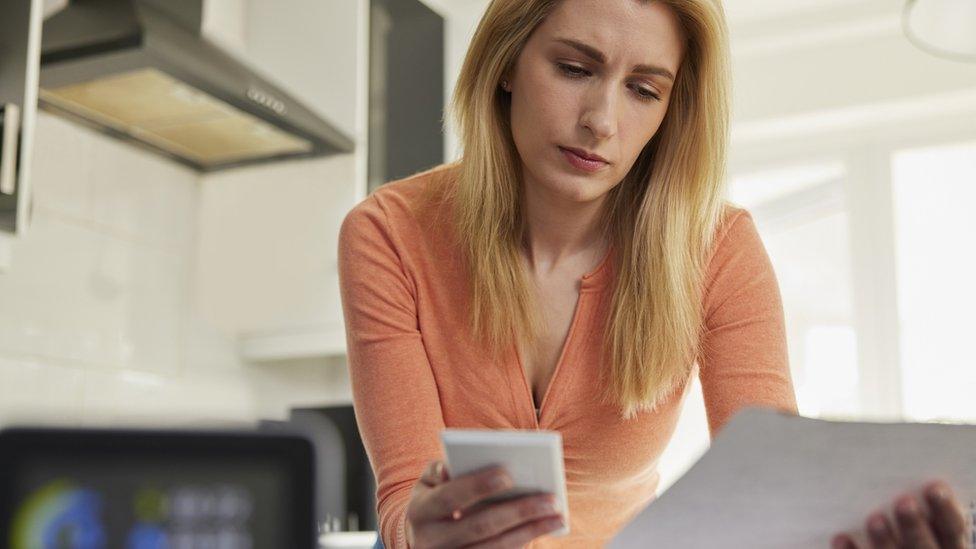Plans to cut energy bills if peak-time use avoided
- Published

Plans to enable households to get discounts on electricity bills if they cut use at peak times are set to be announced in the next two weeks.
The scheme would allow people to save cash if they avoid high-power activities, such as cooking or using washing machines, when demand is high.
It is understood the service is likely to apply to homes which have smart meters installed.
There are hopes it can be put in place this winter, when energy bills rise.
"We are developing a new service that will be available for consumers to benefit from across this winter and will be announcing further information soon," a spokesman for National Grid ESO - which will run the scheme - said.
It is understood the company's proposals of how it will work, such as how money will be paid back to customers, are expected to be revealed in the next fortnight, with consultations taking place with energy providers and the UK's energy regulator Ofgem.
It has been reported that rebates for minimising the use of goods such as tumble dryers, dishwashers and games consoles during the peak hours of 17:00 and 20:00 could be as high as £6 per kWh saved.
National Grid ESO previously told the BBC the service is "not about energy rationing", despite fears over supplies, with Russia's invasion of Ukraine affecting oil and gas supplies to Europe.
The typical household energy bill is forecast to reach £3,553 a year in October.
That is when the price cap - the maximum amount suppliers can charge customers in England, Scotland and Wales for each unit of energy - goes up again. It has been forecast to rise further to £4,650 in January.
'A lifeline'

Jack said the scheme would be a huge help for people struggling with energy bills
Jack Beckwith, 25 and from County Durham, said the scheme would mean he is able to put his heating on this winter.
He expects his bill to go up to £238 per month in October - from his current monthly average of £100 - wiping out his savings.
"I generally keep on top of my usage and pay for what I use. I have some savings - but that was meant for emergencies - my leaky roof fund. That'll all go towards paying for the price increase," he told the BBC.
"It's been a gradual realisation that I can't afford it."
Jack said he was expecting to not meet up with friends, and has already said no to taking on a gym membership. He is also considering cutting back on his Spotify subscription, which could save around £10 per month.
"Off peak heating will be a lifeline," he said. "It will literally will save lives if people can be made aware of it, and can use it, because it will mean they can put the heating on."
National Grid ESO has hosted webinars with energy firms to ask for feedback on its proposals.
The move follows a trial where Octopus Energy offered incentives for 100,000 customers who reduced consumption.
Octopus Energy has said during the trial its consumers received credit on their energy accounts and also had a "self-refund option" where they could get cash transferred to their bank accounts.

How will this scheme affect your energy use? You can get in touch by emailing haveyoursay@bbc.co.uk, external.
Please include a contact number if you are willing to speak to a BBC journalist. You can also get in touch in the following ways:
WhatsApp: +44 7756 165803, external
Tweet: @BBC_HaveYourSay, external
Or fill out the form below
Please read our terms & conditions and privacy policy
If you are reading this page and can't see the form you will need to visit the mobile version of the BBC website to submit your question or comment or you can email us at HaveYourSay@bbc.co.uk, external. Please include your name, age and location with any submission.

Related topics
- Published25 July 2022

- Published27 June 2022
